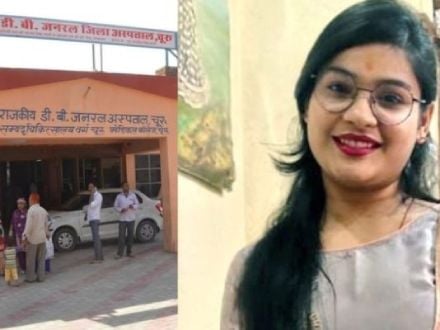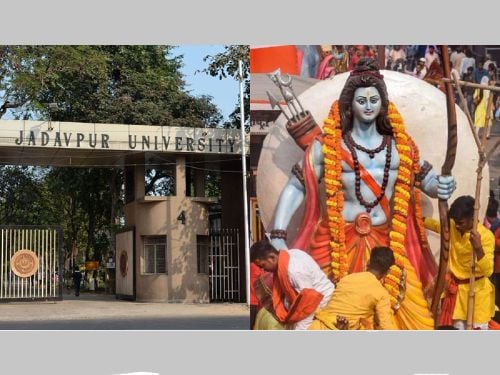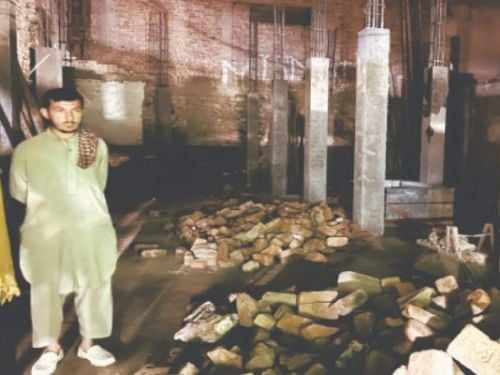Jakarta: Film maker Garin Nugroho, best known in Indonesia for his stark social commentaries, has turned to religion, love and power in his latest work — a controversial adaptation of one of the great Hindu epics.
At one level, his “Opera Jawa”, or Java Opera, is a modern-day version of the Ramayana, a Hindu epic that tells the story of the conquests of King Rama, and the abduction of his wife Sita by the powerful demon-king Ravana.
But Nugroho’s visually stunning film has a wider appeal, even for audiences who are not familiar with the Ramayana, as it tackles the more universal subjects of feminism and sexuality.
“This movie is about rebellion, it’s about breaking free from repression,” Nugroho, dubbed Indonesia’s Ingmar Bergman, told Reuters. “This movie aims to give a voice to the weak.”
In “Opera Jawa”, Nugroho takes an episode from the Ramayana about the abduction of Sinta, as Sita is known in Indonesia, and gives it a contemporary setting.
But in a departure from the epic, the woman revered by Hindus as a goddess is seduced, leading to a fight over her between her husband and lover which ends in bloodshed and death.
Nugroho’s version has infuriated some Hindus in predominantly Muslim Indonesia, in part because it portrays the female lead as a strong, sexually wilful woman, quite unlike the virtuous Sita.
“Such interpretations are common in the performing arts. Sinta is often portrayed as being daring and rebellious in interpretations that date back to the 1960s,” said Nugroho.
“Interpretation is an important aspect of art. You stop interpretation and you stop life itself.”
In the film, King Rama becomes Setio, a poor village potter, while Sinta is Siti, a former dancer, and Ravana is the butcher, Ludiro. Hanuman, the monkey-god who sets off with his army to rescue Sita in the original tale, is recast as a gang leader whose band of break-dancing thugs wreak havoc in the market.
POLITICS, SEX, VIOLENCE
Shot in just 14 days, the film has already won prizes at Singapore and Hong Kong film festivals, and is erotically daring by Indonesian cinematic standards.
In one scene, Setio tries to mould Siti by drenching her with wet clay, while in another, Siti entertains both her husband and her lover at the same time.
“In this story, the female character is repressed, like most women in Indonesia,” said Nugroho.
“Both Rama and Ravana are extremely possessive. They expressed their love to Sinta though violence. It serves as a metaphor for the violence that takes place in every conflict.”
Nugroho, a Muslim who grew up in the Javanese heartland where the film is set and which once formed part of the 8th century Hindu Mataram empire, said the film also has a political message.
“There were a lot of killings during the Suharto time. The mighty and powerful exerted much political violence, which is also a central theme in the movie,” he said, referring to the country’s shift from dictatorship to democracy in 1998 when former President Suharto was forced to step down.
The lawyer-turned-director from Indonesia’s cultural capital Yogyakarta made his name with politically powerful arthouse movies such as the internationally acclaimed “Leaf on a Pillow”.
The 1998 semi-documentary about the street children of Yogyakarta, released shortly after the fall of Suharto, was a critique of social conditions with disturbing, real-life images.
But “Opera Jawa” is more a celebration of Javanese culture, which even today is regarded by some Indonesians as superior to that from any other part of the archipelago.
It was filmed in the heart of Java, against the backdrop of the ancient court of Yogyakarta and famous Hindu ruins of Prambanan, which were damaged in a massive earthquake.
Nugroho combines traditional gamelan music and song, lavish dances and installation art such as candles in the shape of human heads and television sets carved in stone.
Source: yahoonews.com
Read More
» about denigration of Hindu Icons
» Report Defamation

 Rajasthan: Woman found hanging at a beauty parlour, Arshad, 3 others booked
Rajasthan: Woman found hanging at a beauty parlour, Arshad, 3 others booked Jadavpur Univ revokes permission to celebrate Ram Navami on campus after granting it
Jadavpur Univ revokes permission to celebrate Ram Navami on campus after granting it Andhra Pradesh: Farooq kills mentally challenged Hindu man for insurance money
Andhra Pradesh: Farooq kills mentally challenged Hindu man for insurance money Pakistan: Ancient Hindu temple in Khyber Pakhtunkhwa demolished for commercial complex
Pakistan: Ancient Hindu temple in Khyber Pakhtunkhwa demolished for commercial complex Bihar: Goddess Bhagavati Temple in Araria vandalised and deities damaged
Bihar: Goddess Bhagavati Temple in Araria vandalised and deities damaged Vadodara: Beef supplier Imran Qureshi arrested in beef-stuffed samosa case
Vadodara: Beef supplier Imran Qureshi arrested in beef-stuffed samosa case